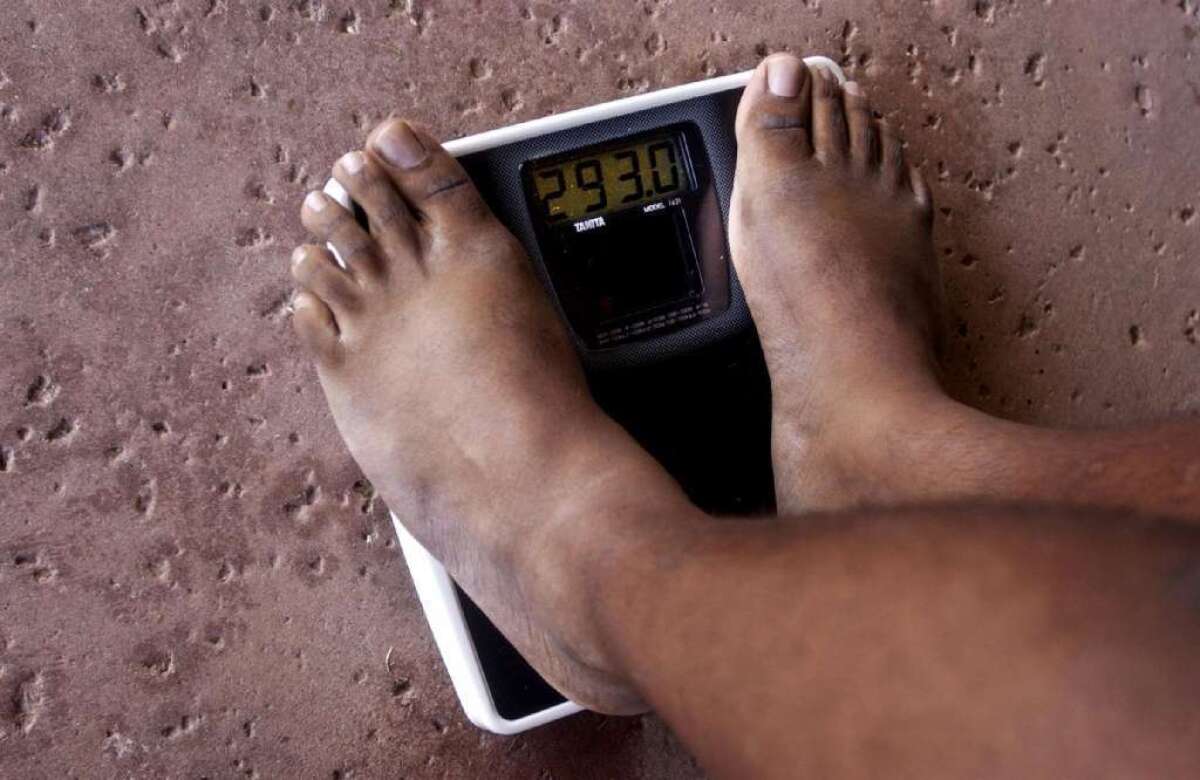Gap widens between actual weight and people’s imagined weight

Men and women, particularly those categorized as obese, have grown increasingly likely over the years to underestimate their true weight, according to a recent study.
In a paper published Wednesday in the journal PLoS ONE, researchers at University College of Cork examined height and weight data for Irish adults over a nine-year period. In three separate health surveys, men and women were asked to estimate their height and weight, and those figures were used to calculate body mass index, or BMI. Afterward, they were weighed and measured for accuracy.
What researchers discovered was that while people routinely misjudged their true dimensions, their weight estimates had grown increasingly inaccurate over time. Their height estimates however remained more or less constant.
Researchers found that the sensitivity, or rate of accuracy, of obese people’s self-estimation of BMI in a 1998 survey was 80%. By 2002, it had fallen to 64% and by 2009 it had dropped to 53%.
BMI is used as an indicator of body fat content. Based on a person’s BMI, they are categorized as either underweight, normal, overweight or obese. People in the obese range face greater risks to their health.
Study authors wrote that under-reporting of BMI has significantly increased over time, and was likely due to “the normalization of obesity.” In other words, obesity had become so common that it has altered people’s view of what is considered normal or obese.
“On one hand, such inaccuracies could be understood as a consequence of a lack of information regarding one’s own height and weight,” wrote lead author and epidemiologist Frances Shiely. “It is also possible that this group are in denial of their unhealthy weight, or don’t want to be labeled as obese.”




